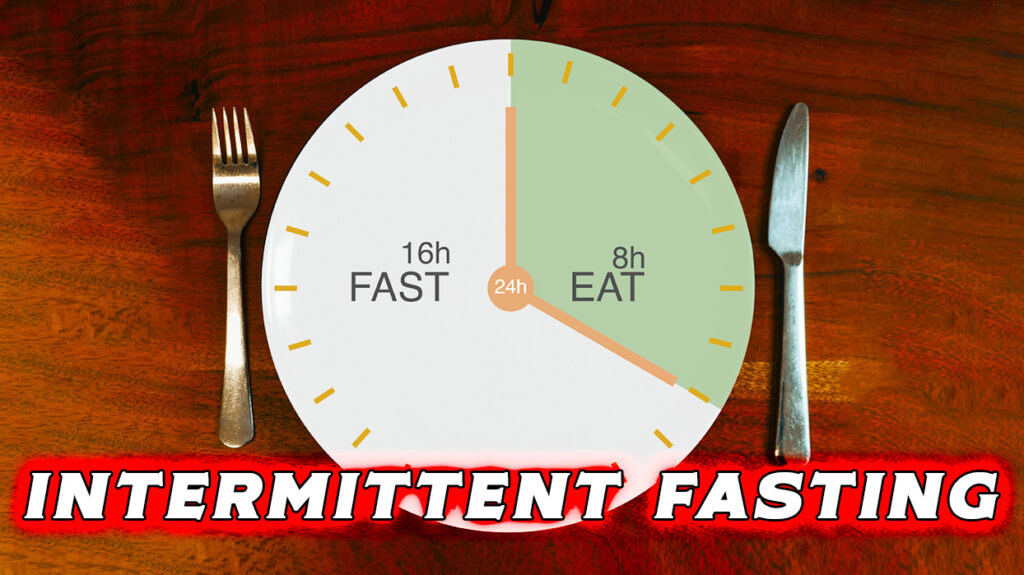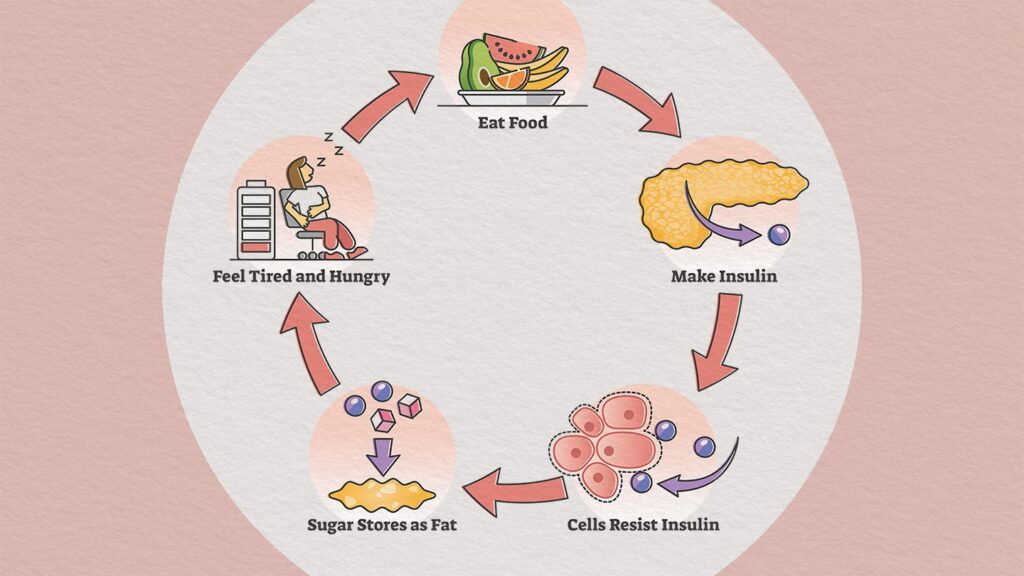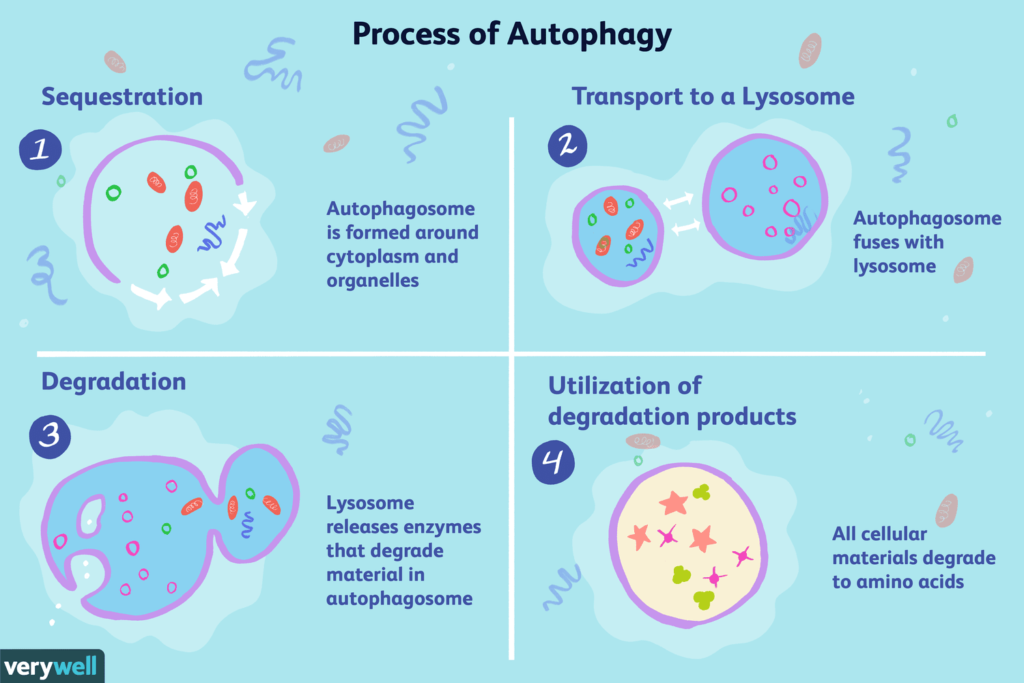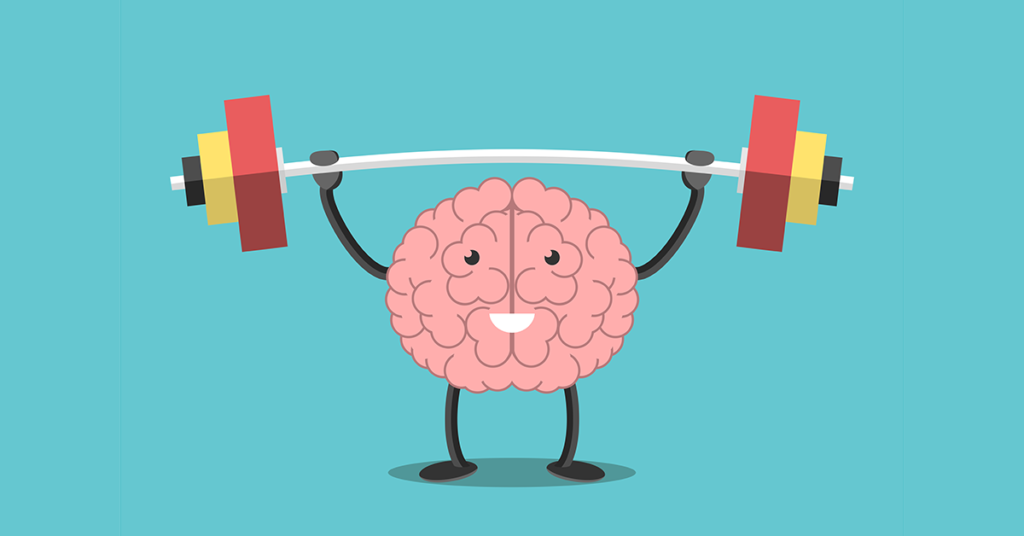In recent years, intermittent fasting has gained widespread attention for its potential health benefits and its role in weight management. This dietary approach, which involves alternating periods of eating and fasting, has captivated the interest of both researchers and individuals looking to improve their health. In this comprehensive guide, we’ll delve into the science behind intermittent fasting, its various methods, and the potential advantages and considerations associated with adopting this eating pattern.
Don’t Miss: 10 Best Cardio for Weight Loss!
Understanding Intermittent Fasting
Intermittent fasting (IF) is not a new concept, but its resurgence in popularity is rooted in contemporary research supporting its potential health advantages. At its core, IF is not about restricting the types of foods you eat but rather about when you consume them. It focuses on the timing of meals and extends beyond mere calorie counting.

The fundamental principle of IF revolves around cycling between periods of eating (often referred to as “eating windows”) and fasting (or “fasting windows”). During fasting windows, individuals abstain from consuming calories, allowing their bodies to tap into stored energy reserves. This metabolic switch, from using incoming food as fuel to burning stored fat, is central to many of the benefits attributed to IF.
Methods of Intermittent Fasting
Intermittent fasting is a versatile dietary strategy, with several popular methods to choose from. Each of these methods offers unique benefits and flexibility to suit individual lifestyles and preferences. However, they all share a common principle: a period of fasting followed by a period of eating. Here are some of the most widely practiced ones.
1. The 16/8 Method
With this method, you have to fast for 16 hours a day and you can eat under the 8-hour eating window. For example, if you choose to eat between 12 PM and 8 PM, your fasting window would extend from 8 PM to 12 PM the next day.
2. The 52 Diet
In this approach, you have to eat regularly for five days of the week and restrict calorie intake to around 500-600 calories on the remaining two non-consecutive days. This method is often referred to as “fasting days.”
3. The Eat-Stop-Eat Method
Your fasting period will be a full 24 hours once or twice a week with this method. For instance, you might fast from dinner one day to dinner the next day in one week.
4. Alternate-Day Fasting
With this approach, you need to alternate between fasting days (no or minimal calorie intake) and regular eating days. Some variations allow for a limited calorie intake (usually around 500 calories) on fasting days.
5. The Warrior Diet
This method involves fasting for most of the day and consuming one large meal in the evening, typically within a 4-hour eating window.
6. The OMAD (One Meal a Day) Diet
As the name suggests, this approach involves eating just one meal a day, often within a specific time frame, such as a 1-hour eating window.
The Science Behind Intermittent Fasting
Intermittent fasting triggers several physiological changes in the body, and researchers have been uncovering the mechanisms responsible for its potential health benefits.
Insulin Sensitivity
When you fast, your body becomes more efficient at using insulin to regulate blood sugar levels which ultimately leads to improved insulin sensitivity and reduces the risk of type 2 diabetes.

Weight Loss
IF typically leads to reduced calorie intake, which can contribute to weight loss. Additionally, fasting encourages the body to burn fat for energy, aiding in fat loss.
Cellular Autophagy
Fasting induces a process called autophagy, where the body removes damaged or dysfunctional cells and components. This cellular “clean-up” may help protect against certain diseases.

Human Growth Hormone (HGH)
Short-term fasting can increase the secretion of HGH, which plays a role in muscle preservation and fat metabolism.

Inflammation Reduction
Intermittent fasting may reduce chronic inflammation, a known contributor to various health issues, including heart disease and cancer.

Brain Health
Some studies suggest that IF may support brain health by promoting the growth of new neurons and protecting against neurodegenerative diseases.

Benefits of Intermittent Fasting
1. Weight Loss and Improved Body Composition
One of the most well-known benefits of intermittent fasting is its effectiveness in promoting weight loss and improving body composition. This occurs through various mechanisms which are as follows:
- Caloric Restriction: By reducing the daily eating window or fasting on certain days, individuals naturally consume fewer calories. And, as we all know, caloric deficit leads to weight loss.
- Enhanced Fat Oxidation: During fasting periods, the body switches from burning glucose for energy to burning stored fat. This promotes fat loss and helps reduce body fat percentage.
- Hormonal Changes: Intermittent fasting can lead to increased levels of norepinephrine and human growth hormone (HGH), both of which play a role in fat breakdown and muscle preservation.
- Improved Insulin Sensitivity: Fasting periods can enhance insulin sensitivity, making it easier for the body to regulate blood sugar levels. This is especially beneficial for individuals with insulin resistance or type 2 diabetes.

2. Enhanced Metabolic Health
Beyond weight loss, intermittent fasting offers significant benefits for metabolic health. Some of the notable improvements include:
- Lowered Risk of Type 2 Diabetes: IF can help regulate blood sugar levels and reduce insulin resistance, lowering the risk of developing type 2 diabetes.
- Reduced Inflammation: Chronic inflammation is a root cause of various health issues. IF may reduce markers of inflammation, contributing to overall well-being.
- Improved Heart Health: Fasting can lead to lower blood pressure, improved cholesterol profiles, and a reduced risk of heart disease.
- Enhanced Brain Function: Intermittent fasting may promote the production of brain-derived neurotrophic factor (BDNF), which is crucial for brain health and cognitive function. It also supports the growth of new neurons.

3. Longevity and Cellular Health
One of the most exciting aspects of intermittent fasting is its potential to promote longevity and cellular health. Fasting triggers autophagy, a cellular process that removes damaged components and helps cells function optimally. This process is associated with longevity and a reduced risk of age-related diseases.

4. Cognitive Benefits
Intermittent fasting doesn’t just impact your physical health; it can also boost cognitive function. Some of the cognitive benefits include:
- Improved Focus and Mental Clarity: Fasting periods can enhance mental clarity and concentration, making it easier to stay focused on tasks.
- Enhanced Brain Health: Fasting supports the growth of new neurons and may reduce the risk of neurodegenerative diseases like Alzheimer’s.
- Stress Resistance: IF can increase the body’s resistance to stress, helping individuals better cope with various challenges.

5. Emotional and Psychological Well-Being
Intermittent fasting can positively influence emotional and psychological well-being in several ways which are as follows.
- Increased Self-Discipline: Fasting requires discipline and self-control, which can spill over into other areas of life, fostering better habits.
- Enhanced Mood: Some individuals report improved mood and reduced symptoms of depression when practicing IF.
- Body Confidence: Achieving and maintaining a healthy weight through IF can boost self-esteem and body confidence.

Considerations and Potential Drawbacks
While intermittent fasting offers numerous potential benefits, it may not be suitable for everyone. Here are some considerations and potential drawbacks to keep in mind.
1. Hunger and Discomfort
During fasting periods, some individuals may experience hunger, irritability, or difficulty concentrating. Adapting to this eating pattern can take time.

2. Nutritional Adequacy
It’s crucial to ensure that you still meet your nutritional needs during eating windows. Fasting should not lead to nutrient deficiencies.

3. Eating Disorders
People with a history of eating disorders should approach IF with caution, as it may exacerbate unhealthy behaviors.

4. Individual Variability
Individual responses to intermittent fasting can vary significantly so it may be possible that one may not get the same amount of benefits like another person or one can easily follow strict IF but another person can’t.
5. Consultation with Healthcare Professionals
If you have underlying health conditions or are taking medications, it’s advisable to consult with a healthcare provider before starting any fasting regimen.
Getting Started with Intermittent Fasting
Before embarking on an IF journey, it’s essential to consult with a healthcare professional, especially if you have underlying health conditions or are taking medication. Once you get your green signal, these are the tips that can help you to get started:
Choose the Right Method
Choose an intermittent fasting method that suits with your lifestyle and preferences. You should experiment with different IF approaches & methods to find the one that suits you best.
Stay Hydrated
During fasting periods, it’s crucial to stay hydrated by drinking water, herbal tea, low-calorie juice or black coffee.

Eat Nutrient-Dense Foods
When you do eat, focus on nutrient-dense foods like fruits, vegetables, lean proteins, and whole grains to ensure you get essential vitamins and minerals.

Listen to Your Body
Pay attention to your body’s hunger and fullness cues. Don’t force yourself to eat if you’re not hungry because it may adversely affect your weight loss journey.
Be Patient
Results may not be immediate, and intermittent fasting may require an adjustment period. Give your body time to adapt.
In Conclusion…
Intermittent fasting is an eating pattern that has garnered attention for its wide range of health benefits, including weight management, improved metabolic health, and longevity. While it may not be suitable for everyone, many individuals have found success with this eating pattern. As with any dietary change, it’s essential to consult with a healthcare provider before beginning IF, especially if you have underlying health concerns.
Ultimately, intermittent fasting is more than just a quick weight loss trend; it’s a lifestyle choice that has the potential to positively impact various aspects of your health as you already have read in this article. By understanding the science behind it and carefully tailoring your approach to your needs, you can unlock the benefits of time-restricted eating and embark on a journey towards health and wellness. Hopefully, you found this article helpful enough. If you really did then don’t hesitate to express your valuable thoughts in the comment section below. Thanks for visiting and appreciating our work.
